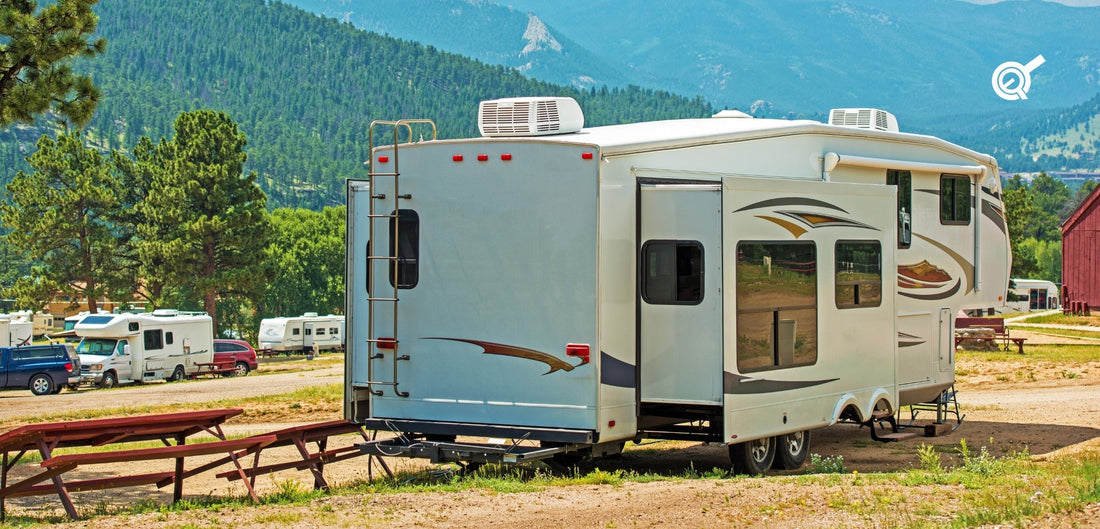Actuators are essential components in the world of recreational vehicles (RVs), enabling automation and movement for a wide range of systems, including slide-outs, leveling jacks, doors, and steps. They help improve convenience, safety, and overall user experience. Choosing the right type of actuator—hydraulic or electric—is crucial for ensuring optimal performance, durability, and ease of maintenance. This article explores the differences between hydraulic and electric actuators to help RV owners make informed decisions.
1. Understanding Actuators in RV Applications

Hydraulic Actuators operate using pressurized hydraulic fluid to generate movement. A pump pushes the fluid through valves into a cylinder, which in turn causes a piston to move. This movement is then used to extend or retract mechanical components.
Electric Actuators, on the other hand, use an electric motor to drive a lead screw or similar mechanism, translating rotary motion into linear movement. These actuators require only electrical input and are generally more compact as an overall system.
Both actuator types are used in RV applications like:
- Slide-outs for expanding living space
- Leveling systems and stabilizing jacks
- Entry steps, compartment, and RV doors
- Adjustable furniture and lift systems
View the different use cases and industries that have benefited from our linear actuators!
2. Hydraulic Actuators in RV Applications

How They Work: Hydraulic actuators operate through a network of fluid lines and a central pump. When activated, hydraulic fluid is directed into a cylinder, creating pressure that drives a piston to perform linear motion.
Advantages:
- High Power Output: Ideal for heavy-duty applications like lifting or extending large slide-outs or leveling large Class A motorhomes.
- Reliable Performance: Well-suited for extreme environments, including high or low temperatures and rugged terrain.
- Longevity: When properly maintained, hydraulic systems can have a long operational lifespan.
Disadvantages:
- Maintenance Requirements: Systems must be checked regularly for fluid levels and leaks.
- Installation Complexity: More parts and lines result in more complex installations and repairs.
-
Leak Risks: Hydraulic fluid leaks can pose environmental hazards and lead to performance loss.
Selecting An Actuator to Use for Calculation Estimates

How They Work: Electric actuators rely on a DC motor to generate motion. This motor drives a lead screw mechanism, which converts rotary motion into linear extension or retraction.
Advantages:
- Ease of Installation and Use: Electric actuators are much more plug-and-play for their installation, requiring minimal components & lower maintenance.
- Energy Efficiency: They consume power only when moving and require no external pumps or reservoirs.
- Quiet and Clean Operation: No fluid means fewer hazards for environmental concerns and quieter operation.
Disadvantages:
- Lower Power Output: Limitations in their force capacity may not always be suitable for extremely heavy RV applications.
- Motor Size: The electric motors mounted onto the body of the actuator may be too large to fit inside certain space restrictions.
- Battery Dependent: Operation is limited by the RV battery and electrical power system capacity.
4. Key Differences Between Hydraulic and Electric Actuators
|
|
Hydraulic Actuators |
Electric Actuators |
|
Power Output |
High – ideal for heavy-duty tasks |
Moderate – handles light to medium power requirements |
|
Installation |
Complex – requires fluid lines and pumps |
Simple – fewer components, easier setup |
| Maintenance |
Requires fluid checks, potential leak management |
Minimal – mainly electrical checks |
|
Environmental Impact |
Can leak fluid, environmentally sensitive |
Cleaner, no fluids required |
|
Cost Analysis |
Higher maintenance and initial costs |
Lower cost and simpler upkeep |
5. Choosing the Right Actuator for Your RV Applications

When selecting between hydraulic and electric actuators for RV applications, several factors must be considered:
RV Size and Weight:
- Larger RVs (e.g., Class A motorhomes) may benefit from the power of hydraulic actuators.
- Smaller travel trailers or Class B RVs may find electric actuators sufficient and benefit from the more compact overall system.
RV Application Needs:
- Use hydraulic actuators for slide-out systems, leveling jacks, or heavy duty tasks.
- Use electric actuators for door openers, furniture adjustments, or lighter compartments.
Budget and Maintenance Preferences:
- If long-term cost and simplicity are priorities, electric actuators offer better value.
- If performance in extreme conditions or heavy loads is the priority, hydraulic may be worth the investment.
Power Availability:
- Electric actuators rely on the RV’s battery bank, so ensure your system can handle the load.
- Hydraulic systems typically have independent power units but require monitoring of fluid and mechanical systems.
FAQ Block
What is the main difference between hydraulic and electric actuators in RVs?
-Hydraulic actuators use pressurized fluid for motion, offering high power for heavy-duty applications, while electric actuators use motors and screws for clean, energy-efficient operation.
Which actuator is better for heavy-duty RV applications?
-Hydraulic actuators are usually better suited for heavy-duty tasks like large slide-outs or leveling large motorhomes due to their higher force output.
Are electric actuators more energy-efficient than hydraulic actuators?
-Yes, electric actuators are generally more energy-efficient since they only consume power during movement and do not require continuous pumping or fluid circulation.
What are the maintenance requirements for hydraulic and electric actuators?
-Hydraulic actuators require regular checks for leaks, fluid levels, and system integrity, while electric actuators need minimal maintenance, usually limited to electrical system checks.
Which actuator is more cost-effective for RV owners?
-Electric actuators tend to be more cost-effective over time due to lower initial costs, simpler installation, and reduced maintenance needs.
IN SUMMARY
Hydraulic and electric actuators both play important roles in the RV industry, offering distinct benefits depending on the RV application. Hydraulic actuators specialize in heavy-duty tasks but come with higher maintenance and complexity. Electric actuators provide a cleaner and more efficient overall alternative, ideal for lighter tasks and simpler installations.
The best overall actuator solution depends on the specific requirements of a rig and environment. Carefully consider your RV’s size, power setup, and intended actuator use to make the most informed choice. Whether upgrading a slide-out or adding automation to a storage compartment, understanding these differences can help ensure reliable, efficient operation on the road. If you're exploring heavy duty linear actuator solutions for your next RV application or wish to discuss our products further, please feel free to reach out to us! We are experts in what we do and will be happy to assist however we can.
sales@progressiveautomations.com | 1-800-676-6123




